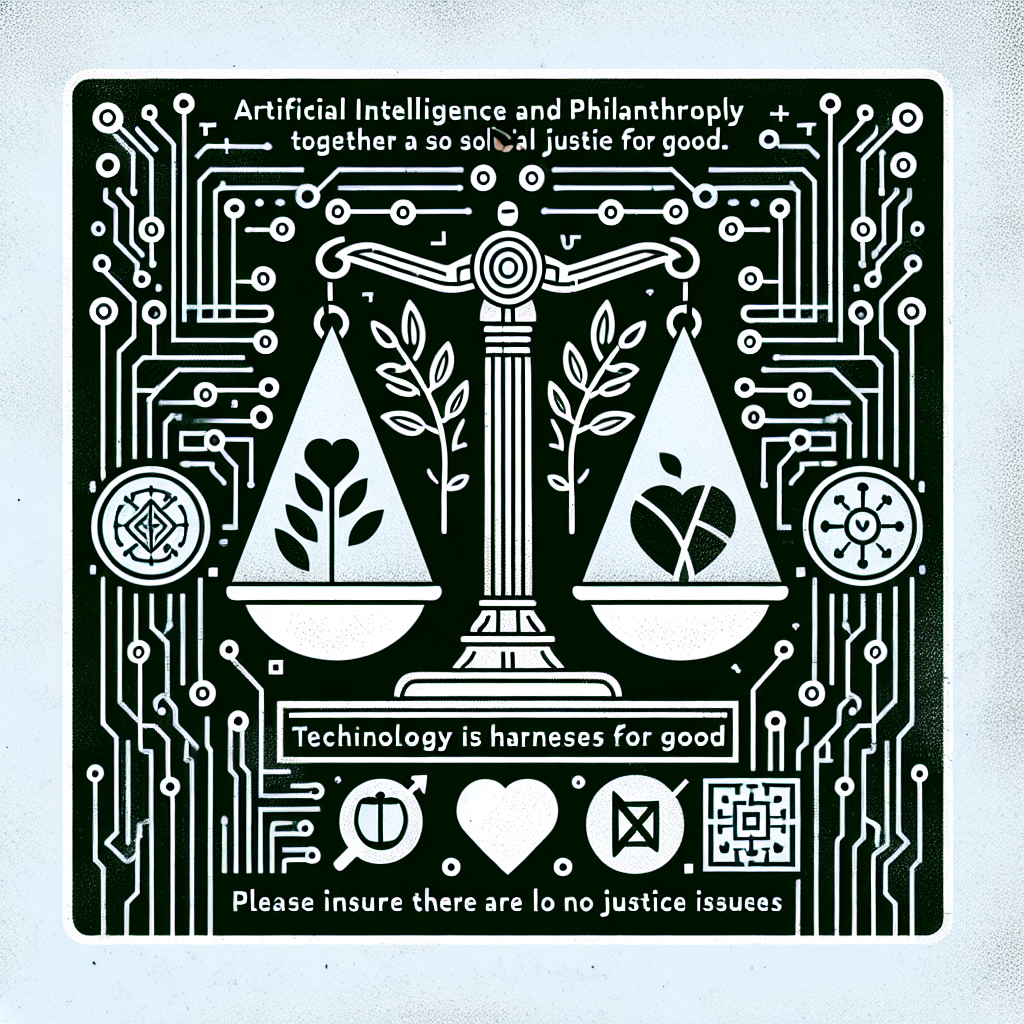In recent years, the use of artificial intelligence (AI) in addressing social justice issues through philanthropy has become increasingly prevalent. AI technologies have the potential to revolutionize the way organizations approach social justice issues by providing innovative solutions and insights that were previously unavailable. From identifying patterns of inequality to optimizing resource allocation, AI can play a crucial role in creating a more equitable society. This article will explore the role of AI in philanthropy and its impact on social justice issues, as well as discuss some common questions and concerns surrounding the use of AI in this context.
AI has the potential to address social justice issues in a variety of ways. One of the key benefits of AI is its ability to analyze large amounts of data quickly and efficiently. This can be particularly useful when it comes to identifying patterns of inequality and discrimination in society. For example, AI can be used to analyze data on housing discrimination or employment disparities to identify areas where interventions are needed.
AI can also help philanthropic organizations optimize their resource allocation. By using predictive analytics, AI can help organizations identify which programs are most effective at addressing social justice issues and allocate resources accordingly. This can help ensure that limited resources are used in the most impactful way possible.
Another way that AI can address social justice issues is through the use of natural language processing (NLP) technology. NLP can be used to analyze large amounts of text data, such as social media posts or news articles, to identify trends and patterns related to social justice issues. This can help organizations better understand public sentiment around these issues and tailor their interventions accordingly.
Furthermore, AI can also be used to automate certain processes, such as grant-making or impact evaluation. By automating these processes, organizations can save time and resources, allowing them to focus on more strategic initiatives that have a greater impact on social justice issues.
Despite the potential benefits of AI in addressing social justice issues, there are also some concerns and challenges associated with its use. One common concern is the potential for bias in AI algorithms. Bias can arise when the data used to train AI models is not representative of the population it is meant to serve. This can lead to discriminatory outcomes and exacerbate existing inequalities.
Another concern is the lack of transparency in AI algorithms. Many AI models are complex and opaque, making it difficult to understand how they arrive at their conclusions. This can make it challenging to ensure that AI is being used in a fair and ethical manner.
There are also concerns about the potential for job displacement as a result of the automation of certain tasks through AI. While AI has the potential to increase efficiency and productivity, it can also lead to job loss in certain industries. This raises important questions about how to ensure that the benefits of AI are shared equitably across society.
Despite these challenges, there are steps that can be taken to ensure that AI is used in a responsible and ethical manner in addressing social justice issues. One key step is to ensure that AI algorithms are trained on diverse and representative data sets. This can help reduce the risk of bias and ensure that AI is serving the needs of all members of society.
Transparency is also crucial when it comes to AI algorithms. Organizations should strive to make their AI models as transparent as possible, allowing for greater scrutiny and accountability. This can help ensure that AI is being used in a fair and ethical manner.
In addition, it is important to consider the potential impact of AI on jobs and the workforce. Organizations should work to develop strategies to mitigate the negative impact of automation on jobs, such as reskilling programs or job training initiatives.
Overall, the role of AI in addressing social justice issues through philanthropy is a complex and multifaceted one. While AI has the potential to revolutionize the way organizations approach social justice issues, it also raises important questions about fairness, transparency, and equity. By taking proactive steps to address these concerns, organizations can harness the power of AI to create a more just and equitable society.
FAQs:
Q: Can AI really help address social justice issues?
A: Yes, AI has the potential to revolutionize the way organizations approach social justice issues by providing innovative solutions and insights that were previously unavailable.
Q: How can AI be used to address social justice issues?
A: AI can be used to analyze data on inequality and discrimination, optimize resource allocation, analyze text data to identify trends, and automate certain processes such as grant-making or impact evaluation.
Q: What are some concerns associated with the use of AI in addressing social justice issues?
A: Some common concerns include the potential for bias in AI algorithms, lack of transparency, and job displacement as a result of automation.
Q: What steps can be taken to ensure that AI is used in a responsible and ethical manner in addressing social justice issues?
A: Steps include ensuring that AI algorithms are trained on diverse and representative data sets, promoting transparency in AI algorithms, and developing strategies to mitigate the negative impact of automation on jobs.

